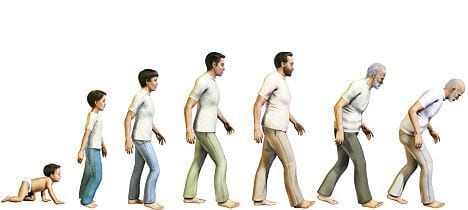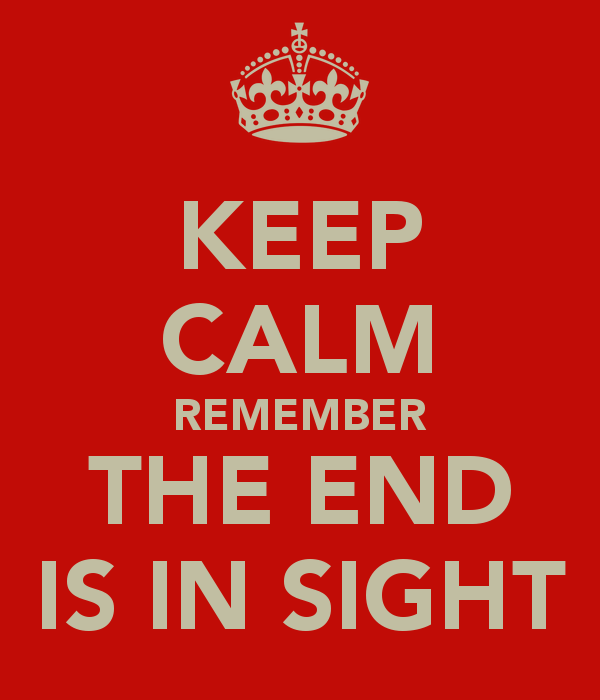In August of 2009 I wrote a blog post about climbing Croagh Patrick in Co Mayo, and compared it to the experience of first-year students going to College. Given that today is the first full day of the 2016/2017 academic year I thought I would reproduce it here in full.

While climbing Croagh Patrick last Saturday I had plenty of time to think - and I did, about lots of things. I am heading back into my eight academic year in NCI and will once again have first-year students for a Technology Fundamentals module. I was thinking about what an adventure going to College must be for new students. Also, my daughter Kate is going to Trinity next month to read Natural Science - of course, this reminded me of 31 years ago when I was about to embark on the same adventure in October 1978. So I started to think about the similarities between climbing a mountain for the first time and going to College.
I set out with lots of enthusiasm to climb Croagh Patrick - from the bottom it looks like the picture above - easy? College too is easy - right? I bought a walking stick because I figured I might need to lean on it along the way. Lots of people did not bother with walking sticks - I guess they figured they would not need any help. Students don't get sticks when they enter College, but they do need help along the way.
Within 100m I was almost out of breath and was already wondering how I was going to make it to the top (or the end of the year). I had to rethink my strategy and slow down - rushing into anything (climbing mountains/going to College) is not a good idea. There were lots of other people (fellow students) on the mountain who were equipped differently. There were the "professional" mountain climbers (star students who find College easy) with the right boots, gear, Alpine walking sticks, and energy bars. There were people like me - wearing the only boots I had, carrying a backpack with a camera, a jumper that I did not use, a wind-cheater, and water. I had had lots of advice (as students get from teachers and parents) on what to bring. There were people totally unprepared for a mountain - light T-shirts, sandals, no water, even some people wearing Wellingtons, all sorts - just like College. Some people do it the hard way - even in bare feet, but all have a common goal - to get to the top.
After a while I got into a rhythm and routine as I got used to the mountain. Some parts were steeper than others - in College, some subjects are easier than others. Now I started to open up to other mountain climbers who were going up with me, stopping for rests, and of course coming down. Lots of banter about the climb - "only 10k more to the top", "what time is the next bus?", and "is there an elevator here?" Making friends on the mountain was getting easier - we were all in the same boat, and feeling the same sore muscles, and the same determination to get to the top (like making it through to the end of the year and passing your exams). Some people passed me out - I guessed they had done the mountain before (2nd years). Some were actually running up and down the mountains as if they knew where the best footholds were for every step - they must be third or fourth-year students, or graduates. They made it look easy.
Some people were struggling - stopping for rests, looking longingly back at the bottom, or deciding that the mountain was too tough after all. Students drop out of College for all sorts of reasons, people set out to climb a mountain and not make it to the top - College and mountains are not for everybody. What I did see was others urging their companions to keep going. Some were pulling and pushing, offering hands - lots of parents were carrying jumpers and coats for their kids. There was lots of advice - "lean forward", "slow down", "drink some water", and "keep going". It could have related to studies instead of mountain climbing - "get your head into the books", "eat properly", and "keep going". The tougher the climb became, the more I listened to the advice. Advice for first years anyone?
There are lots of small pitfalls - stepping on sharp stones, slipping backwards, somebody getting in your way. Students miss lectures, forget assignments, fail continuous assessments - but the important thing is to keep going. Nobody said mountains or College were going to be easy every step of the way. Expect setbacks - you will not be disappointed. But there are also lots of places to take a rest and take on some refreshments (student bars - in my case The Lincoln Inn). We all need this or we will certainly exhaust ourselves on our respective paths. As Stephen Covey wrote - "sharpen the saw".
Near the top, you call upon all your resilience and recently gathered experience to take on the final part (exams). You have made it this far and there can be no turning back. On Croagh Patrick the hardest part was the last bit - just like exams. Then you're there - at the summit. Exhausted. Thirsty. Exhilarated. You look around and everyone else looks the same - just like your fellow students after the last exam is over. Everywhere there are cameras and smiles. Some people who look like they have just been out for a morning stroll are posing for official looking photos - they must be graduating. You are glad to have made it to the summit at the first time of asking. You look around, but already some of the people who climbed to the top with you are already on their way back down. Absorb the moment - summer is waiting and next year is just around the corner. You have been to the mountain top - enjoy!
You look back down the mountain and take in the view. You can see a whole lot more at the top than you could at the bottom - like knowing a lot more at the end of the year than at the start. The path from the bottom to the top looks a lot easier from here - the stones you tripped on, the gravel you slipped on, the steep parts, are forgotten memories. You have been to the mountain top and you know that you can do it again.
Heading back down of course is a lot easier than coming up the mountain. Some people are racing down the mountain. Are they trying to reach the bottom before you? Will all the jobs be gone when I get to the bottom? You don't know what's at the bottom, but you know you have to reach it. You know you will have to come back up again, so you notice more on the way down than you did on the way up. There was a easier way past a certain obstacle, there's a view you didn't see on the way up - you stop and absorb the sights, you even offer advice to those still on the way up. You have been to the mountain top, and you are ready for more.
It then seems like seconds have passed and you are suddenly at the bottom. You look back up at the top and despite aching muscles you will have an inner pride in your achievement. The mountain looks a lot smaller than when you set out. You know that you can do it again, second year suddenly looks a lot easier. You have been to the mountain top, first year is over.

























